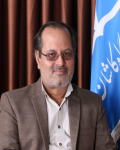| Authors | Mojtaba Nmayandeh and Hossein Heidari |
|---|---|
| Journal | Journal of Marefat Adyan |
| Page number | 85 -105 |
| Serial number | ۲۴ |
| Paper Type | Full Paper |
| Published At | ۲۰۱۵ |
| Journal Grade | Scientific - research |
| Journal Type | Typographic |
| Journal Country | Iran, Islamic Republic Of |
Abstract
At the beginning of "Liberation theology", it was mainly dependent on Roman Catholicism and greatly indebted to the driving force of the Second Vatican Council. Liberation theologians believe that the goal of liberating the poor and the oppressed is reflected in the Bible, especially in the discussion about the "exodus" of Israelite and the life, death, and resurrection of Jesus of Nazareth. In addition to its being in line with Marxism in its struggle against exploitation, methodologically, this theological school was greatly indebted to Marxism, and it emphasized on the cycle of "action- thinking -action". The failure of socialism, the relative sovereignty of secularism and the return of neoliberation economic policy in Latin America evoked the feeling that liberation theology was collapsing. However, considering the fluid and critical epistemology of the first generation of the leaders of the movement, the second generation of its leaders expanded the scope of their studies on such issues, like globalization and capitalism, human rights, women's and children's rights, environmental ethics and so on. Using an analytical approach, this paper studies the principles of Catholic view liberation theology about the salvation of man, the status of Christ in man's salvation, liberation hermeneutics of the Bible, and redefining the duties of the church. It also evaluates the innovations of this movement in the last fifty years.
